Technology offers solutions to COVID-19

Technology offers solutions to COVID-19
BUT WE MUST COMBINE IT WITH BETTER POLICIES
6 minutes read
14th May 2020
Related Topics
Business / Smart working / Covid-19
 Giovanni Rimassa
Giovanni Rimassa
Chief Innovation Officer
Dr Giovanni Rimassa supports business development, market positioning and commercialisation activities, while leading research and innovation initiatives with a particular focus around Artificial Intelligence and Human-Centered AI. In more than 20 years in academia and industry, Giovanni worked as a visionary researcher, a startup entrepreneur, a product manager and a detail-oriented software engineer. He is drawn to holistic themes where technology matters but is also part of a dynamic social and ethical context.
More articles from Giovanni
Martel’s CIO, Dr Giovanni Rimassa looks at how good understanding of digital technology, combined with social science and humanities into a holistic professional ethos is your best guide and best chance to thrive during this crisis and, more importantly, beyond.
We are sometimes led to believe that regular people are bored with computer security, data protection, and privacy and simply do not care about any of that. Users want convenience, users want easy. Users have problems, companies have experts that provide solutions: and among the many problems amenable to solutions, solutioning, solutionism, these days you would be hard-pressed not to pick the ongoing COVID-19 pandemic.
Countries in Europe, with individual differences due to the stage and severity of their pandemic spread, are experiencing similar trajectories, in that they adopted restrictive and painful measures which are now starting to bear some fruit in term of reduced health system overload and daily death toll. The next step will now be, in the insightful words of Tomas Pueyo, moving from the hammer of blanket restrictions to the dance of dynamic disease control or, more prosaically, entering phase two.
Nobody really knows how to do that exactly; the sensible way seems to try some relaxation measures and carefully monitor the results, being ready to retract or adapt whatever seems to lead to excessive regrowth of daily cases. The examples of China, South Korea, and other countries in Asia that are already engaged in this post-outbreak phase should bring additional insight; their toolbox for COVID-19 management varies among countries, but includes in many cases some mobile application that can not only locate and track its user, but also preserves the history of which other people said user met, how long and how far apart they have been together, and other epidemiologically relevant information.
The whole “dance” or “phase two” process can be described as a closed loop control system. Even in simple linear models, such systems are critically affected by delays between error detection and reaction; as a fast, cheap, automated, and scalable sensor to continuously monitor when, where and who may have been infected by whom a contact tracing app could surely help with that.
At this point, I feel a faint voice in my head saying “Global pandemic? No problem: there’s an app for that!” and start to smell a whiff of solutionism coming our way. For a better nose than mine, I could certainly do worse than turning to Evgeny Morozov. In a piece on the Guardian, he unpicks the tangled web of technology, modern capitalism and dominant political ideology to go well beyond the most obvious conflict between individual privacy and collective health that usually frames the debate.
Morozov sees the application of technology as a solution to society’s problems as a “digital plaster” – big data can help manage passenger flow on a city’s crumbling infrastructure or track patients in a planetary health emergency, but due to lack of time and funding big data does not offer an alternative, does not ‘fix’ the problem. We have microtargeting and micro payments for individual consumption – where are the macro-level anonymous insights on collective behavior for mutual assistance? He terms this the longer-term ‘post-solutionist’ approach to harness new forms of social coordination and innovation afforded by digital technologies.
I certainly appreciated that article but, in my opinion, the most effective explanation and satire of naïve (or malevolent) solutionism comes from the superior insight and sharper messaging that only true intellectual artists can master: in her 2010 song “Only an Expert”, Laurie Anderson combines a funny and compelling long text about problems, experts, and solutions with a relentless electronic beat that seems to say “you cannot ignore this. You will listen”. Interestingly, the lyrics are about the 2008 economic crisis, climate change, and international warmongering; but, as with Morozov, the song actually tackles core issues of our society and is perfectly applicable to our current dealings with contact tracing apps, face masks and public health funding.
So where does this leave us? Are we really trapped between the next pandemic wave and hyperinflated surveillance capitalism? The old school hacker in me does not need a reason to feel irrationally attached to privacy and security (AdNauseam? Check! Privacy Badger? Check! TrackMeNot? Check! And Qubes OS, Whonix, boxes within boxes!), but we learned the hard way that stakes are high, victories are temporary, and this matters for everyone.
There is no room for individual convenience to trump public health, social welfare or civil and democratic rights. For me it is clear that the way forward is not a solution, a technology, or a set of fixed rules, but rather a process, certainly computer-supported and maybe partially automated, but essentially an adaptable process where people and institutions engage, assess, and improve things in full awareness, paying the usual price of eternal vigilance.
It is somewhat comforting for me to see that, amid all this turmoil, the European Commission is once again trying to navigate the uncomfortable path between quickly and effectively helping innovation and safeguarding European social and individual values. I disagree with some of the points in the EC guidance on apps supporting the fight against COVID-19, such as storing the proximity data on the user device: I would rather allow copying anonymized proximity data to other nodes, to enable distributed chaining algorithms, without necessarily having a single catch-all database of everything. I nevertheless appreciate the Commission’s intent and effort to combine technical guidelines with legal and ethical norms.

Martel helps navigate digital transformation and works on a variety of EC projects to combine effectiveness and European values.
The actions of public authorities, be they continental, national, or local, are and will be vital to determine the final outcomes of the COVID-19 crisis and aftermath; however, we as technology users and creators, as responsible citizens, as active members of society and as compassionate people, must remain engaged and vigilant to do our part and help others to do the same!
 Horizon Europe
Horizon Europe



